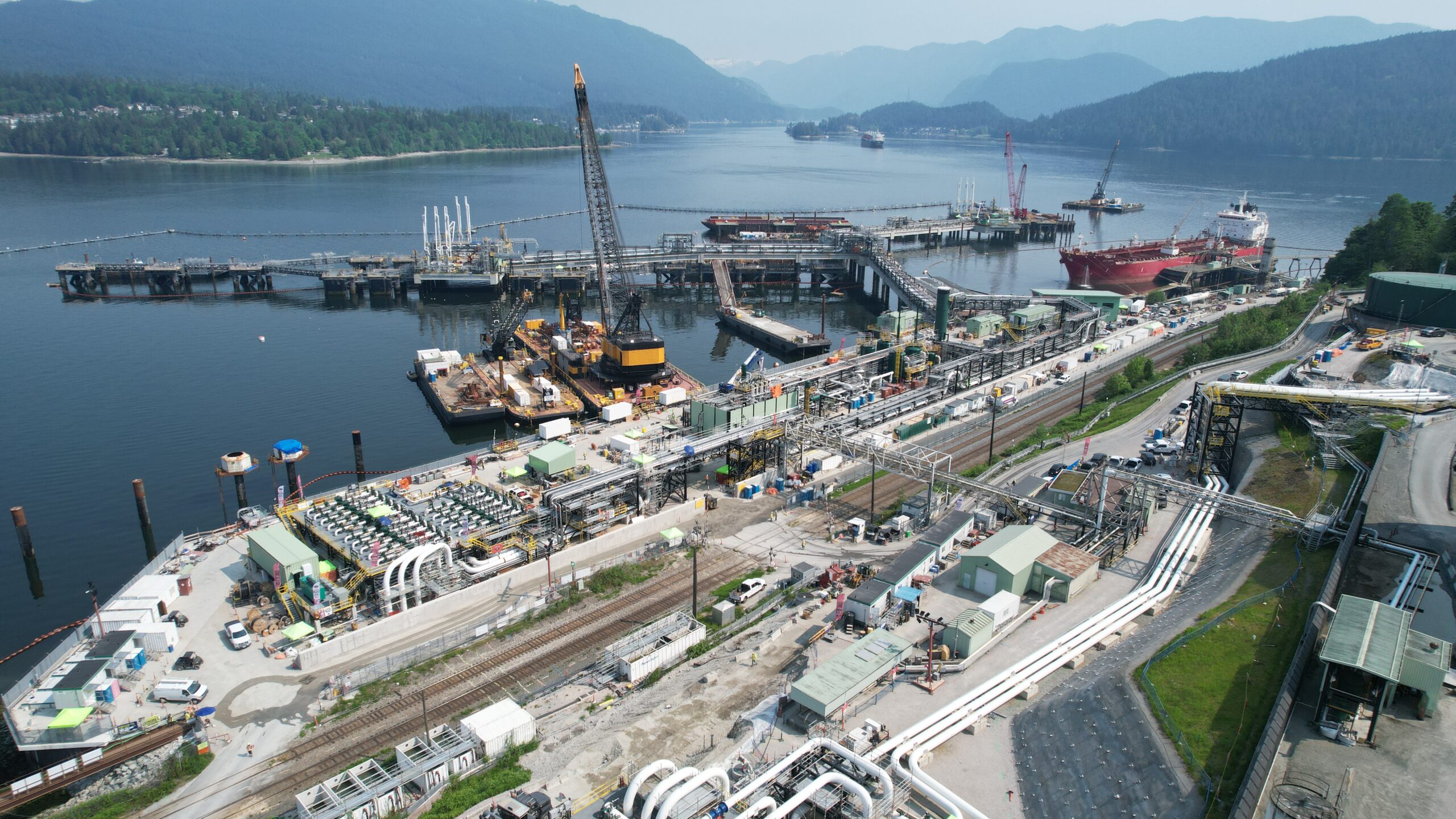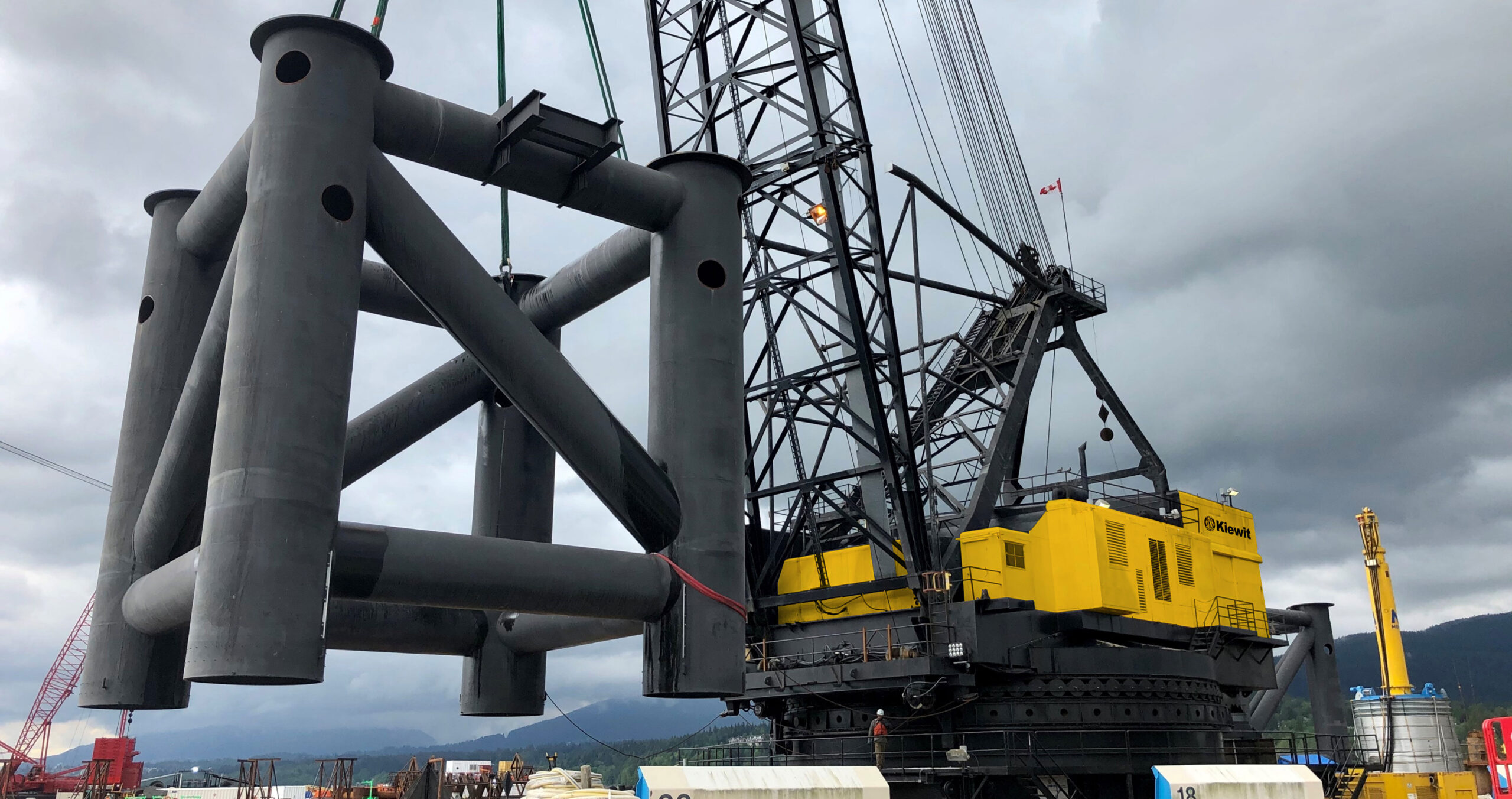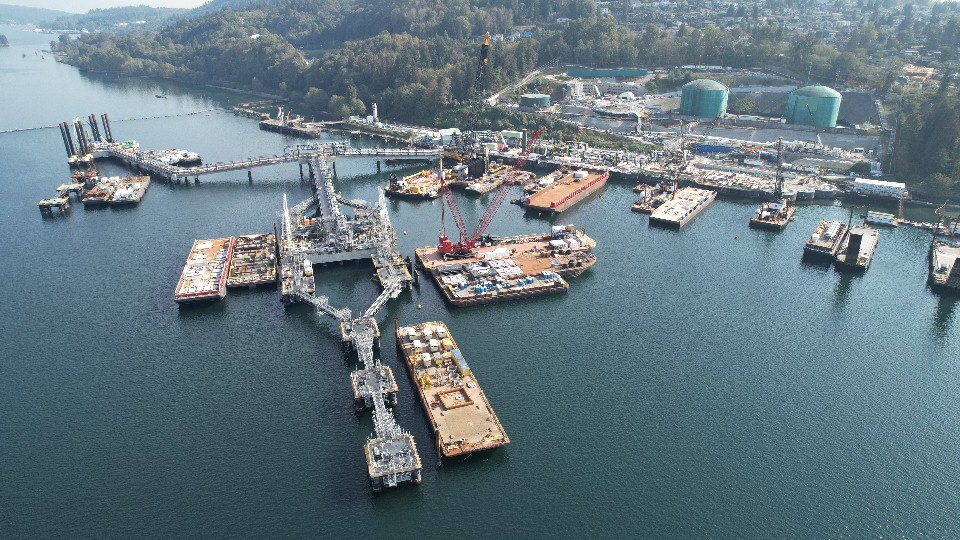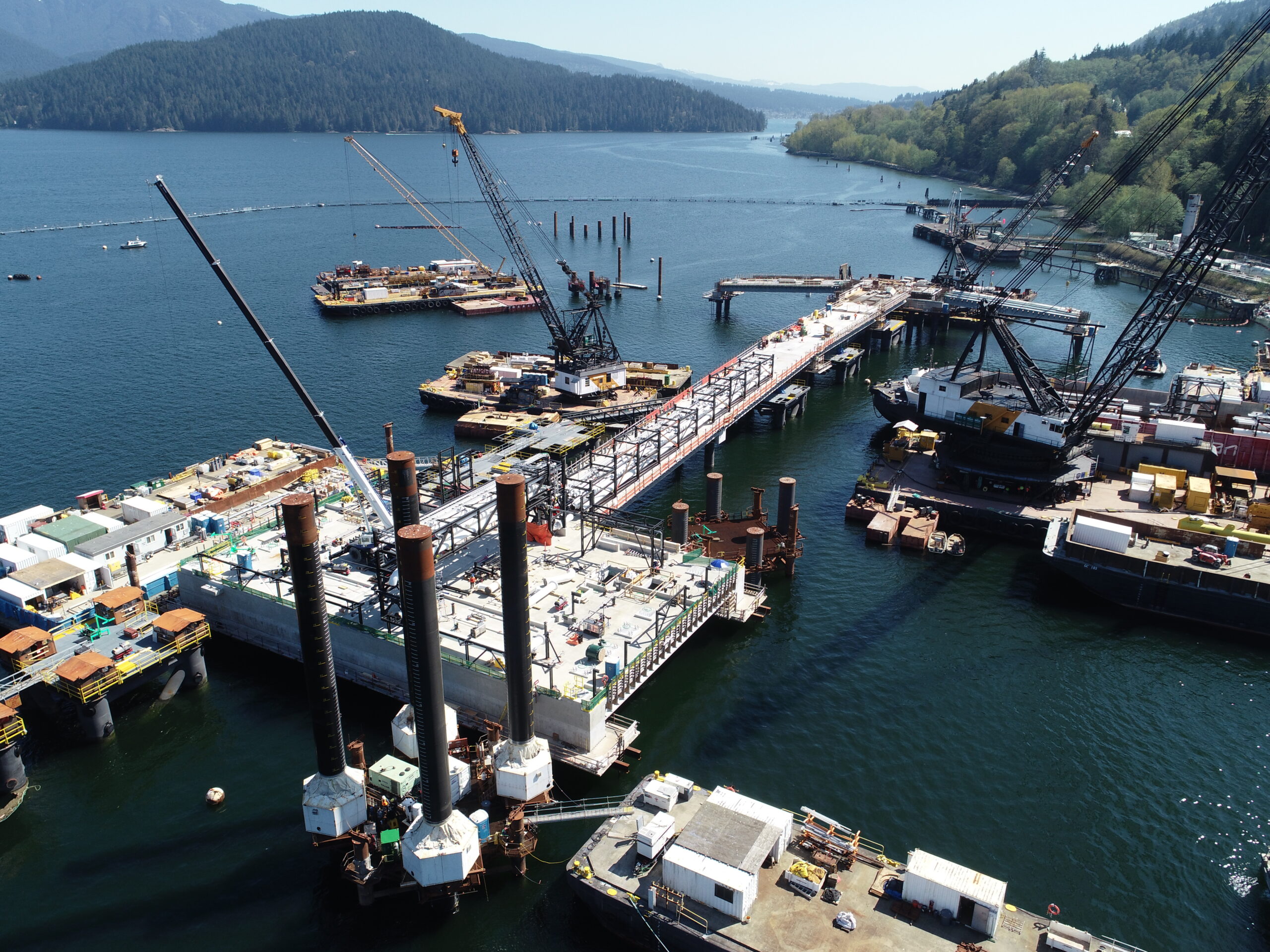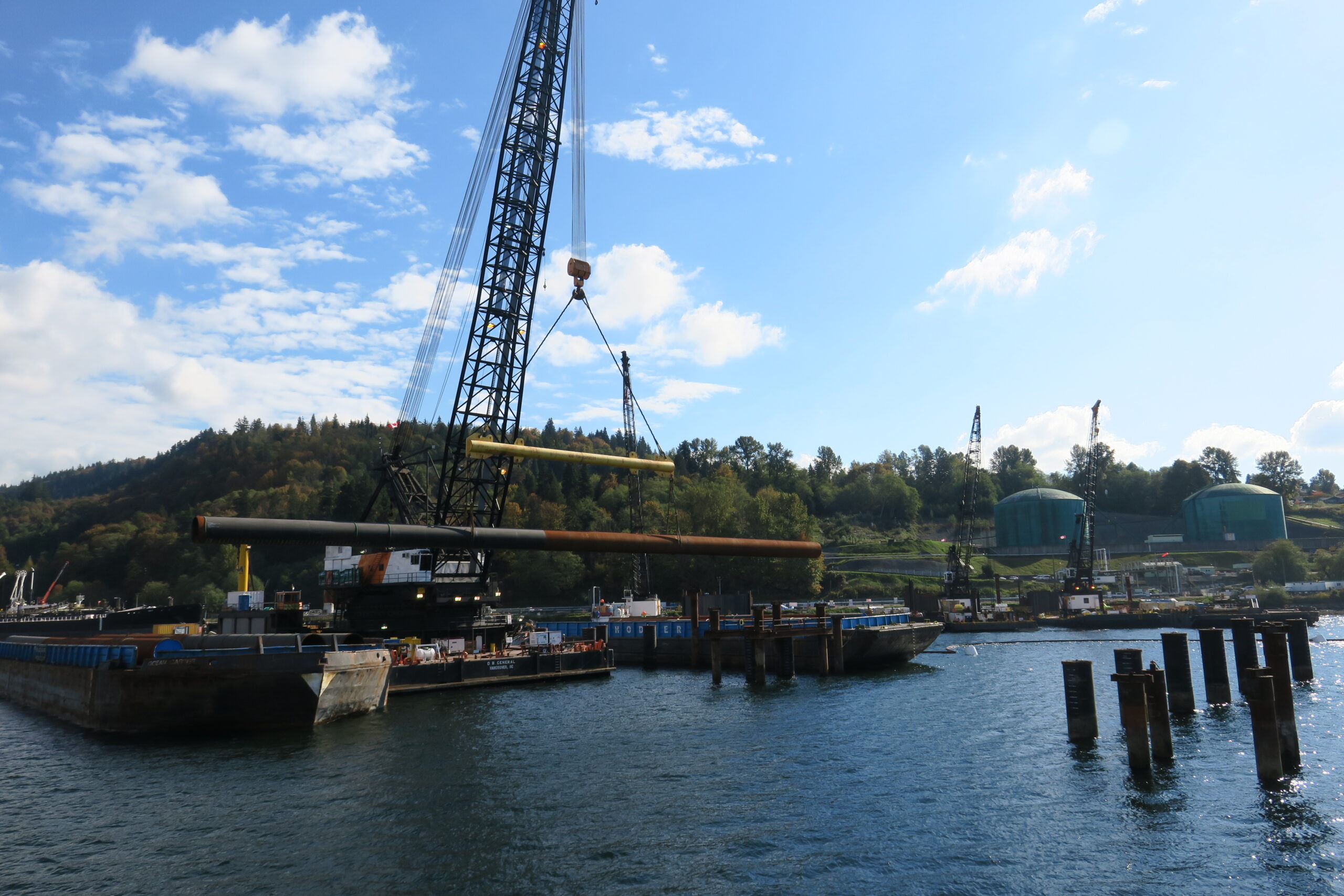Westridge Marine Terminal
Burnaby, British Columbia
The Kiewit-led joint venture, Kiewit-Ledcor Trans Mountain Partnership (KLTP), was awarded the engineering, procurement and construction (EPC) contract for the Lower Mainland portion of the Trans Mountain Expansion Project. The entire Lower Mainland project encompasses several scopes of work, including Westridge Marine Terminal, Burnaby Terminal, Sumas Terminal, Burnaby Mountain Tunnel and Pipeline Spreads 7 and 5B. The Westridge Marine Terminal scope included:
- Removing the existing utility dock and installing a bulkhead wall by placing 13 circular sheet-pile cells
- Constructing three additional berths to accommodate Aframax class tankers, expanding the terminal’s foreshore extension adjacent to the existing facility
- Completing terminal marine work, including installing in-water piles, a firewater pump house, loading platforms, junction platforms, mooring dolphins and berthing dolphins
The Westridge Marine Terminal serves as the primary loading facility for tankers transporting petroleum products from Burnaby Terminal. KLTP expanded the terminal by adding a new dock complex with three berths, a utility dock to moor tugs, boom boats and emergency response vessels, and extending the shoreline to accommodate new equipment and facilities. The team also installed a rock reef complex, approved by Fisheries and Oceans Canada, to create habitats for various fish and invertebrate species.
Kiewit used its extensive fleet of floating equipment to complete most of the construction. The team deployed the DB General, the largest revolving derrick barge on the West Coast of North America, with a maximum capacity of 700 tons.
The Trans Mountain Expansion Project placed a strong emphasis on Indigenous engagement, creating employment, training and subcontracting opportunities. More than 20 Indigenous communities signed Mutual Benefit Agreements with the project owner to access these opportunities. KLTP employed 46 Indigenous craft workers (20% of the workforce) and three Indigenous staff members.
